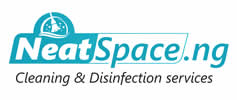Lagos, Nigeria’s bustling economic center, faces significant public health challenges due to its high population density and rapid urbanization. Addressing health challenges in Lagos requires a multifaceted approach including implementing effective waste management systems, improving water quality, promoting personal hygiene, and enhancing sanitation infrastructure.
Common Diseases Linked to Poor Hygiene in Lagos
Cholera: This acute diarrheal illness is caused by ingesting food or water contaminated with Vibrio cholerae. In 2024, Lagos reported 401 cholera cases, resulting in 37 deaths. The outbreak was linked to unsafe drinking water and poor sanitation practices.
Typhoid Fever: Caused by Salmonella typhi, typhoid fever spreads through ingestion of contaminated food and water. Poor sanitation and hygiene facilitate its transmission, leading to symptoms like prolonged fever, fatigue, and gastrointestinal disturbances.
Malaria: Stagnant water from inadequate waste disposal and poor drainage systems serves as breeding grounds for Anopheles mosquitoes, vectors of malaria. This life-threatening disease manifests as fever, chills, and flu-like symptoms.
Lassa Fever: Unsanitary environments attract rodents that carry the Lassa virus. Humans contract the disease through exposure to urine or feces of infected rodents, leading to symptoms ranging from mild fever to severe hemorrhagic conditions.
Hepatitis A: This viral liver disease spreads through ingestion of food or water contaminated with the hepatitis A virus, often due to poor personal hygiene and lack of proper sanitation facilities.
To prevent the spread of diseases in Lagos, start practicing these effective cleaning strategies:
Regular Disinfection: Clean and disinfect frequently touched surfaces such as doorknobs and light switches to prevent pathogen transmission. Or hire a professional cleaning company in Lagos to bear the burden for you. The Centers for Disease Control and Prevention (CDC) also recommend using a 70% alcohol solution or a diluted bleach solution for effective disinfection.
Proper Waste Management: Dispose off household and workplace waste promptly using appropriate waste management tools to deter pests and maintain cleanliness.
Drainage Maintenance: Ensure drains are clear and free-flowing to prevent water stagnation, which can serve as breeding sites for mosquitoes.
Provision of Sanitation Facilities: Install and maintain public toilets or mobile toilets and waste disposal bins to promote proper sanitation practices. Access to adequate sanitation facilities is essential in preventing open defecation and the spread of waterborne diseases.
Enhanced Waste Management Systems: Develop an efficient waste collection system like setting up wheelie bins in strategic areas to prevent environmental contamination.
Enforcement of Sanitation Regulations: Implement and uphold laws pertaining to hygiene standards in public establishments such as markets, eateries, and schools. Strict enforcement ensures compliance and promotes public health.
Support for Pest Control Measures: Facilitate regular fumigation and pest control activities to reduce disease vectors in both residential and commercial areas. Proactive pest control measures are vital in managing vector populations and preventing disease outbreaks.
Prioritizing cleaning and sanitation is vital for disease prevention in Lagos. By adopting rigorous hygiene practices at individual, community, and institutional levels, the spread of infectious diseases can be significantly curtailed. Collective efforts in maintaining cleanliness will lead to a healthier and more resilient Lagos.
